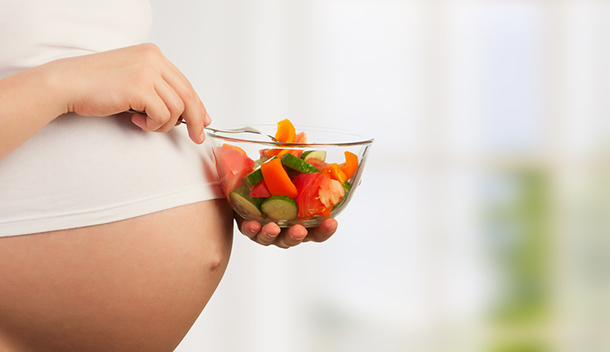First comes the euphoria of being pregnant – but then you’re thrown headfirst into several weeks of nausea, exhaustion, raging hormones and insomnia. Welcome to morning sickness: your first step in this incredible journey as a mum to be.
As many as 90% of pregnant women will suffer symptoms and have to muddle through the misery, which strikes just when you’re doing your best to hide your pregnancy (until hitting that 12 week mark).
You can forget all about feeling blooming lovely for the first trimester but hang in there – there’s a bundle of joy to come.
What’s in a name?
First things first - the name is misleading: nausea and vomiting can affect you at any time of day or night. Some women will be physically sick; others suffer from the feelings of nausea. Symptoms usually start at around six weeks, but can start as early as four weeks, and typically clear up by the second trimester, around 14 weeks.
For all its adverse effects, though, morning sickness is a good sign as it means that your pregnancy hormones are high, and a tiny human is really growing inside you.
Home truths
You feel you should be excited and happy, yet you feel miserable and ill; you want to feed your unborn child daily helpings of fruit and veg, but all you can stomach is bread, mashed potato and chips – and the day you eat an apple is a major breakthrough.
Rest assured, your liver stores many of the nutrients your baby needs to get you through these first few months – and a daily dose of and a daily dose of a pregnancy supplement, which will give your baby the folic acid and multivitamins it needs.
Top tips
There’s no magical cure for morning sickness. Some women swear by ginger biscuits – but don’t be surprised if this is just another food group that makes you heave.
Try the following:
• Get plenty of rest – and if that means going at bed as soon as you roll through the door after work, do it!
• Eat a slice of dry toast before you even get out of bed
• Drink plenty of water, little and often
• Eat small, frequent meals loaded with carbs
• Avoid hot meals as the smell can often bring on nausea
• Wear comfy clothes with loose waistbands
• Acupressure
• Avoiding foods and smells that make you feel sick
Red alert
Always contact your doctor if you suffer any of the following:
• Severe vomiting and dehydration – you could be suffering from hyperemesis gravidarum (HG) and may need hospital treatment
• Have abdominal pain, a high temperature or are vomiting blood
Proof read by Dr. Rashi Gupta, Sp. OB Gyne, iCare Clinics and Dr. Pratibha
SOURCES


